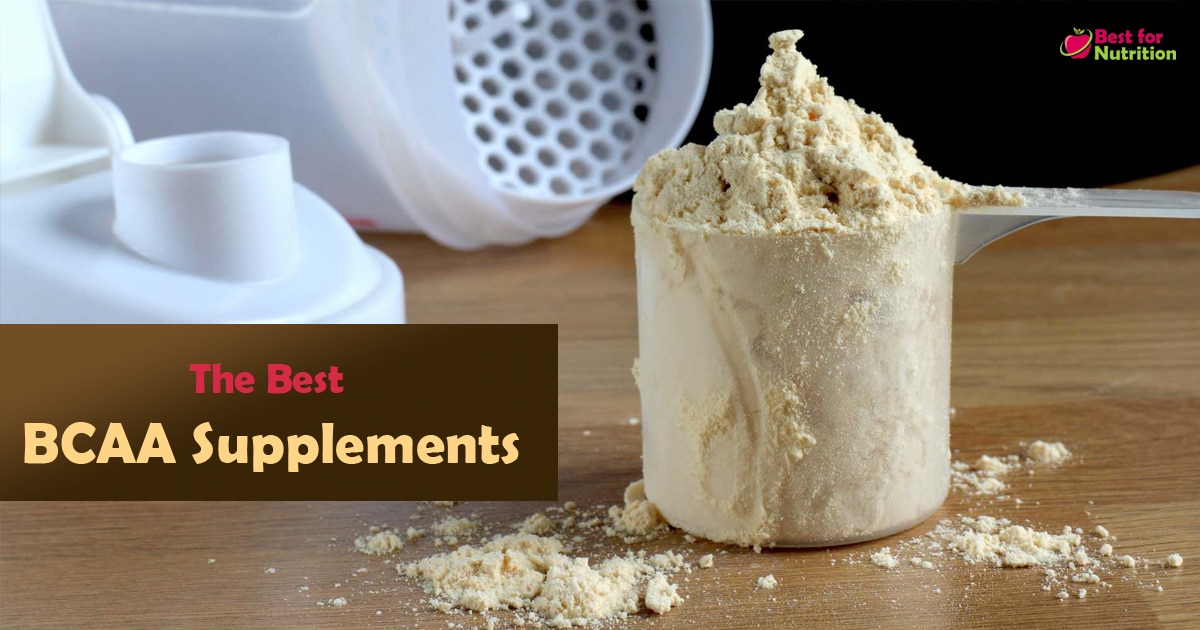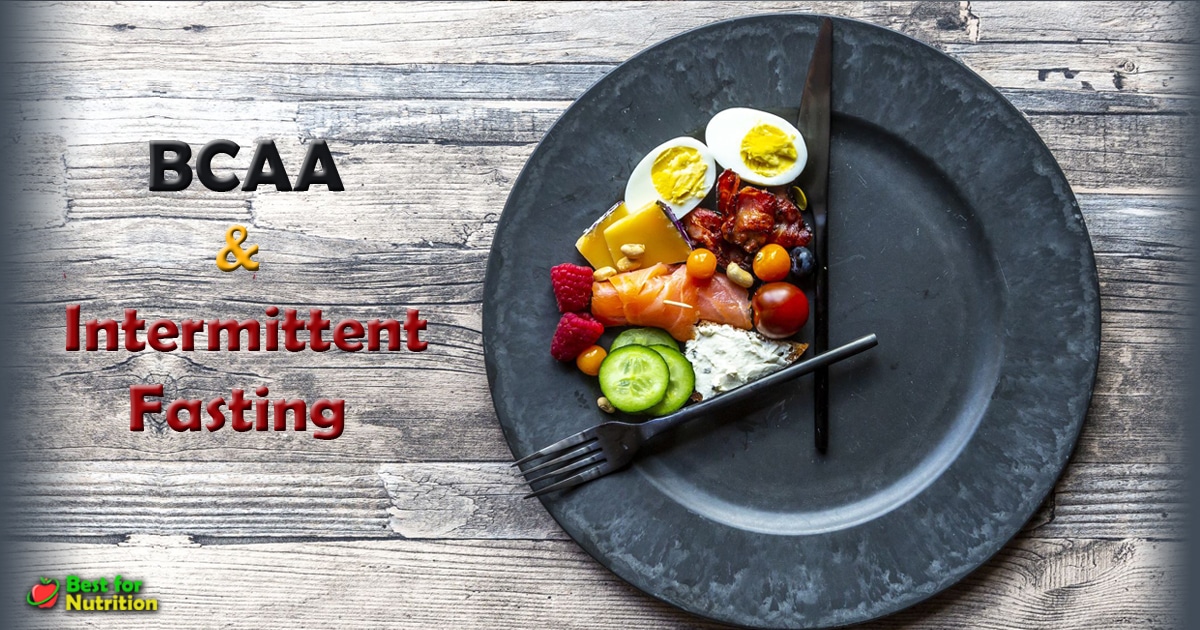If you are looking for something to boost your running performance, BCAAs may be what you are looking for.
BCAA supplements have been one of the most sought after supplements amongst bodybuilders and fitness enthusiasts for quite some time now.
Over time it has made its name amongst the runners and triathletes as well.
From increasing energy levels and reducing the mental fatigue that tends to creep up on runners to decreasing muscle soreness and boosting recovery BCAAs are claimed to offer many benefits to enhance running performance.
But is there any truth to these claims?
Here’s everything you need to know about BCAA for runners: How much BCAAs do runners need, as well as, the right time to take BCAA to maximize running performance.
- What are BCAAs?
- BCAA Benefits for Runners
- When to Take BCAAs for Runners?
- How Much BCAAs Do Runners Need?
- The Side Effects of BCAA on Runners
- FAQs

What are BCAAs?
Amino acids are the building blocks of protein. They help build muscles, repair muscle damage, and regulate many biochemical reactions in your body (1).
While there’re 21 amino acids that are needed by our body, nine are essential, because it can not be produced by the body and needs to be obtained from food to survive (2).
Out of these nine, three are specifically beneficial in maintaining muscle mass, enhancing muscle synthesis (3).
These are leucine, isoleucine, and valine and are known as branched-chain amino acids or BCAAs. The unique molecular structure of a branched side chain gives them this particular name (4).
Complete proteins, which have all the 9 essential amino acids, are excellent sources of BCAA. This mostly includes animal-sourced products such as eggs, meat, poultry, fish, and dairy (5).
You can also find BCAAs in other plant-based protein sources especially in peanuts, chickpeas, lentils, quinoa, and whole grains (6).
Summary: BCAAs are the three unique amino acids, leucine, isoleucine, and valine, that have shown great potential in maintaining muscle mass. Their unique structure enables them to be highly effective in muscle protein synthesis.
BCAA Benefits for Runners
BCAAs makeup approximately one-third of muscle protein and have several important benefits.
While other amino acids are metabolized in the liver, BCAAs can bypass this step and can directly go to the muscles where they are oxidized and used (7). This makes BCAAs highly effective amino acids for runners.
They can contribute up to 10 percent of the total energy while performing aerobic activities such as running, cycling, or swimming.
Research has linked BCAAs to resistance and power based athletes mostly runners. The general results indicate that BCAAs:
- Reduce muscle soreness (8)
- Decrease lactate production that is responsible for muscle fatigue (9)
- Reduced muscle damage (10)
- Increased time to exhaustion (11)
- Optimizes athletic performance by reducing the muscle’s oxygen requirement (12)
- Support weight loss during calorie deficit period without compromising on the muscle mass (13)
- Increases power output (14)
- Used as energy as they readily get oxidized in the muscles for fuel (15)
- Stimulate anabolic (muscle building) hormones and boost muscle protein synthesis (16)
- By preserving your glycogen store, resist fatigue (17)
- Inhibit catabolic hormone cortisol, which causes muscle breakdown and therefore contributes to faster muscle recovery (18)
- Regulates blood sugar levels and increase fat burning (19)
- Following a physical exertion, BCAAs aid in muscle gain and muscle repair (20)
- Enhances hemoglobin production (21)
- Boosts immune system, which tends to get depleted following intense training or running (22)
- Improves mental focus (23)
- Lowers a runner’s perceived exertion, allowing them to feel better during long-distance training sessions and races (24)
Summary: BCAAs benefit runners in many ways. It boosts energy, increases muscle synthesis, prevents muscle breakdown, increases endurance, reduces fatigue, and many more making BCAAs making it a great choice for a good run.
When to Take BCAAs for Runners?
BCAAs increase stamina and delay feelings of exhaustion making it a great option for runners, especially those who are into long-distance running (25).
Cortisol, which is also known as “stress hormone” can cause muscle breakdown. Physical exertion and intense exercise like running can wear away at your muscles after a certain period of time. This may lead to weak leg muscles in runners and an overall inability to run long distances (26).
Supplementing with BCAAs can inhibit cortisol production resulting in lesser muscle protein breakdown amongst runners. The body will be able to recover faster resulting in decreased soreness and enhanced muscle growth.
You can include BCAA supplements in your running regime before and after your workout and may also take it intermittently throughout. Let’s take a look to understand more.
BCAA Before Running
The three BCAAs make up about one-third of muscle protein and their unique structures enable it to completely bypass the liver and go straight to the muscles where they can provide instant energy (27).
BCAAs provide the additional amino acids to the body which have been shown to be important for protein synthesis and reducing protein breakdown (28).
Whether you are into endurance running or are a high-intensity-runner who is feeling completely drained out during your long runs, BCAAs may boost your energy level.
Therefore, BCAAs’ taken 15 minutes before the race offers a readily absorbed energy and protein source. This increases your stamina and can help runners go for longer distances without feeling energy deficient.
Summary: BCAAs taken before running, can decrease muscle breakdown, common among runners, and provide you with the energy that boosts your performance.
BCAA During Running
Studies have stated that human performance is limited by our minds, not by our muscles. When the brain sends a signal to the muscle that it is tired, we tend to slow down, even though we can still push ourselves (29).
BCAAs increases your power output by providing instant energy that increases your time to exhaustion. This means that you delay getting tired (30).
It has also been observed in those studies that BCAAs may minimize the effects of the mental fatigue that seem to creep up for runners (31).
During endurance race, as both the glycogen level and BCAA levels are depleted, a high amount of tryptophan goes into the brain, where it is converted to serotonin that creates a feeling of fatigue.
BCAA can stop this by inhibiting the uptake of tryptophan by the brain. This delays fatigue and helps to have a better run.
During long-endurance running, you burn around 100 calories per mile. You hit the point very soon where you can exhaust your muscles and your energy store.
BCAA powder, mixed into a drink and sipped during the run can help you keep yourself hydrated and provide you with energy.
This is especially applicable to marathoners, ultrarunners, and triathletes who can continue in their pace and do not break the run with these supplements.
Summary: Supplementing with BCAAs during a run helps minimize mental fatigue which improves endurance during the long run. BCAAs also provide instant energy to the exhausted muscles for a better run.
BCAA After Running
Taking BCAAs shortly after the run can be potentially beneficial. It can help reduce fatigue and muscle soreness while speeding up your muscle recovery (32).
Supplementing with BCAAs can repair the small tears in your muscles that are caused by running, reverting back to the strength that the muscle had. It becomes stronger than it was before (33).
Leucine, one of the BCAAs is great at stimulating muscle protein synthesis, which signals other amino acids in the body to form muscles (34).
In a 2011 study, it was seen that athletes who were completing steady-state exercise like running found a 33 percent higher muscle protein synthesis during the recovery period and had lower overall body protein breakdown when athletes took it (35).
BCAAs also reduce DOMS ( Delayed Onset of Muscle Soreness), which means pain relief, reduced tension, improved recovery resulting in maximized performance (36).
Summary: BCAAs taken after the run helps in muscle increasing muscle synthesis and reducing muscle breakdown.
How Much BCAAs Do Runners Need?
BCAA supplementation is individual specific and depends upon a lot of factors such as weight, gender, physical activity, and duration of your activity.
Generally, the recommended daily protein intake for men is 56 grams and for women, it is 46 grams. People who are training at low intensity and run shorter distances, if consumed this quantity can sufficiently get enough BCAAs through natural foods (37).
However, long-distance runners and athletes will need an extra amount which can be nicely met with BCAA supplements. This will keep up with their training and racing, with muscle and energy recovery.
Endurance athletes must increase their daily protein intake to a minimum of 1g/ kg body weight for women and 1.76 /kg body weight for men (38).
Essentially you would want to aim for 10-20 grams of BCAAs and 3-4 g leucine per meal.
It is advised to take BCAAs with carbs for proper recovery and is considered the best as a post-workout drink.
Summary: Even though BCAAs are readily available from foods mainly animal products and whole grains, the extra protein or amino acid needed for a runner can be effectively met by BCAA supplements in a proper dose.
The Side Effects of BCAA on Runners
When consumed in very large amounts, BCAAs can make you feel nauseated and sick. It can lead to loss of coordination, headache, gastrointestinal problems like diarrhea, and increased insulin resistance. In worse cases, kidney failure.
However, consuming BCAA supplements do not have any dangerous health consequences as long as the quantity is in the range of our body’s needs.
BCAAs are generally safe and the above-mentioned side effects are seen in very few people (39).
Frequently Asked Questions (FAQs)
Will BCAA Make You a Faster Runner?
As mentioned quite a few times, BCAAs help you recover faster from muscle soreness. BUT, can they make you a faster runner?
To answer this question, let us check out this 2012 study, that was conducted in Tokyo with 28 athletes who were supplemented with BCAAs during a 100 km ultra-marathon (40).
It was observed that the race time remained unchanged, it was the same as the athletes who had taken the placebo. Even though BCAA supplementation increased muscle protein synthesis by around 33 percent during the recovery period, it didn’t make the runner faster.
Is it Alright for a Vegan or a Vegetarian Athlete to Take BCAA?
A vegan or a vegetarian athlete is totally cut out of most of the meat, dairy, egg, and fish from your diet. Plant-based foods do have proteins but they aren’t complete proteins (do not contain all the essential amino acids).
However, plant-based proteins such as quinoa, soy, and chia seeds are high in protein and are essential for plant-based athletes to get sufficient protein. But, these also lack BCAAs which are known to be highly effective on muscle growth and recovery.
For these athletes, BCAA, particularly leucine supplementation will be a great addition to the diet. It is absolutely fine for them to take BCAAs.
They should aim for at least 3 grams of leucine every 3-4 hours. They can also get them from whole food sources like nuts, lentils, and beans (41).
Can Sports Injuries Heal Better With BCAA?
Yes, sport’s injuries can heal better with increased BCAA intake.
As BCAAs help alleviate muscle atrophy ( muscle wasting), it might definitely assist in healing sport’s injuries.
Their capacity to boost protein synthesis and inhibit protein breakdown may speed up recovery and help increase your muscle strength.
How Much BCAAs Do Runners and Triathletes Need?
Even though BCAA supplement dosage may vary from person to person and can depend on a lot of factors like age, gender, a physical activity practiced, your aim should be 10-20 grams of BCAAs or 3-4 grams leucine per meal (42).
The Final Note
BCAAs offer several benefits for runners. During a run, when your glycogen store is exhausted, your body turns to BCAAs for energy. The unique structure of BCAAs offers a ready energy supply by completely sidestepping the liver and oxidizing directly in the skeletal muscles.
If you are in for an intense HIIT workout or a long-distance run, BCAA supplementation is beneficial for boosting energy levels and preventing muscle breakdown.
A major advantage it offers is the reduction in a runner’s perceived exertion which allows them to feel better during their run, thus enabling them to run longer.
BCAA also has many post-exercise benefits for runners as it reduces muscle soreness and fatigue while boosting muscle recovery and new protein synthesis.





